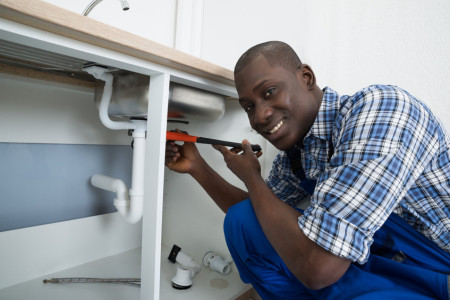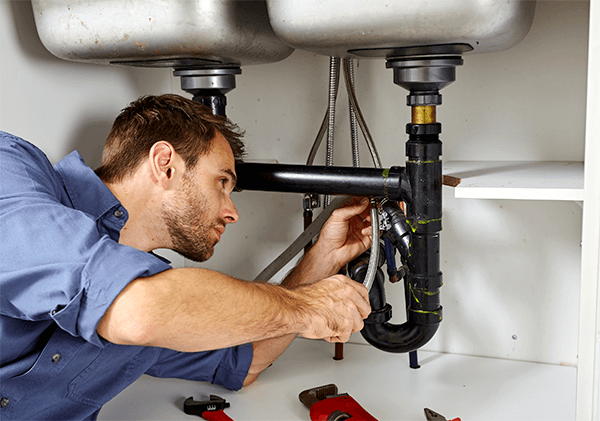Fast Fixes for Plumbing Emergencies: What to Do Until Help Arrives
Fast Fixes for Plumbing Emergencies: What to Do Until Help Arrives
Blog Article
In this article further down you can locate a bunch of extremely good facts all about What to Do During a Plumbing Emergency.

Pipes emergency situations can strike at any time, triggering stress and anxiety and possible damage to your home. Whether it's a burst pipeline, a clogged up drain, or a dripping faucet, understanding exactly how to take care of the situation until an expert plumbing professional gets here can conserve you from further problems. This post supplies crucial emergency situation plumbing suggestions to assist you alleviate damages and reclaim control throughout a pipes situation.
Turn Off the Water
The first step in any plumbing emergency is to turn off the supply of water. For local problems, such as a dripping tap or commode, switch off the shutoff near the component. When it comes to a significant leakage or ruptured pipeline, situate your home's major water shut-off shutoff and turn it off right away. Understanding the location of these valves in advance can save important time during an emergency.
Shut Off Your Water Heater
In certain emergencies, such as a burst pipe, it's wise to shut down your hot water heater. This avoids overheating or damage to the unit when water stops flowing. Turn off the power supply to the hot water heater (electrical or gas) and allow it cool off to prevent prospective threats.
Momentarily Quit a Burst Pipe
A burst pipeline can cause considerable water damage in minutes. To minimize the concern:
Call an expert plumbing immediately to resolve the issue permanently.
Have an Emergency Pipes Set
Prepare a basic pipes emergency kit to take care of minor issues successfully. Your kit needs to include:
Having these devices available can make a significant distinction in your ability to handle emergency situations.
Unclog Drains Securely.
A clogged drain can be a frustrating and untidy concern. Here's exactly how to tackle it:.
If these approaches don't work, stay clear of making use of excessive force, as it may aggravate the clog.
Take Care Of Overflowing Toilets.
An overflowing bathroom can trigger prompt turmoil. Below's what you should do:.
Address Small Leaks with Short-term Repairs.
Little leakages can quickly become substantial troubles if left uncontrolled. Make use of these short-lived fixes up until expert aid gets here:.
While these solutions aren't irreversible, they can aid decrease water loss and damages.
Take Care Of Frozen Piping Carefully.
In cooler environments, frozen pipes are a common emergency. If you suspect a frozen pipeline:.
Know When to Call a Specialist.
While quick fixes can assist briefly, certain plumbing concerns call for instant expert attention. Call a plumbing technician if:.
Quickly contacting an expert guarantees the concern is solved correctly and protects against additional difficulties.
Avoid More Damage.
Taking quick activity to reduce damages can save you money and time in the long run. Below's exactly how:.
Final thought.
Pipes emergencies can be frustrating, but with the ideal expertise and tools, you can handle the circumstance properly till help shows up. By turning off the water system, resolving small leakages, and making use of temporary repairs, you can decrease damage and keep your home safe. Bear in mind, these pointers are short-term options; constantly consult a certified plumbing professional to take care of the root cause of the issue. Prep work and fast reasoning are your best allies in any type of pipes emergency situation.
Expert Tips for Emergency Plumbing Repairs
Plumbing emergencies can be incredibly stressful and inconvenient. Whether it’s a burst pipe, a clogged drain, or a leaky faucet, these common plumbing emergencies need immediate attention to prevent further damage to your home. But before you panic, it’s important to understand the basics of plumbing repairs and the steps you can take to address these emergencies. In this article, we will share some expert tips to help you navigate through these situations and minimize potential water damage.
Identifying Common Plumbing Emergencies
Leaky pipes and faucets Clogged drains and toilets Burst pipes Low water pressure Water heater problems Essential Tools for Plumbing Repairs
Plunger: Useful for unclogging toilets and drains Adjustable wrench: Needed for tightening or loosening nuts and bolts Pipe wrench: Ideal for gripping and turning pipes Tape measure: Necessary for accurate pipe measurements Plumber’s tape: Helps create watertight seals Understanding Emergency Plumbing Services
Emergency plumbing services are designed to provide immediate assistance for unexpected plumbing issues that can cause significant damage to your home, business, or health. These services are typically available 24/7 and are staffed by experienced plumbers who can quickly diagnose and repair a wide range of plumbing problems.
When a plumbing emergency strikes, time is of the essence. Whether it’s a burst pipe flooding your basement or a gas leak posing a serious risk, emergency plumbing services ensure that help is just a phone call away. These professionals are equipped with the tools and expertise to handle any situation, minimizing damage and restoring your plumbing system to proper working order.
What Constitutes a Plumbing Emergency?
Burst pipes or water supply lines: These can cause extensive water damage and need immediate repair to prevent flooding. Gas leaks or suspected gas leaks: Gas leaks are extremely dangerous and require prompt attention to avoid potential explosions or health hazards. Sewer backups or overflows: These can lead to unsanitary conditions and significant property damage. Clogged drains or toilets causing water to overflow: Overflowing water can damage floors, walls, and other structures. Leaks or water damage causing structural damage: Persistent leaks can weaken the structural integrity of your home or business. No hot water or heating: A lack of hot water can be more than an inconvenience, especially in colder months. Common Causes of Plumbing Emergencies
Aging or corroded pipes: Over time, pipes can deteriorate, leading to leaks or bursts. Improperly installed or maintained plumbing fixtures: Faulty installations or lack of maintenance can result in unexpected failures. Tree roots or other debris infiltrating your sewer line: Roots can grow into pipes, causing blockages and backups. Frozen pipes or water supply lines: In colder climates, pipes can freeze and burst, leading to significant water damage. High water pressure or sudden changes in water pressure: Excessive pressure can strain pipes and fixtures, causing them to fail. Natural disasters such as floods or earthquakes: These events can disrupt your plumbing system and cause severe damage. Steps to Minimize Water Damage
Locate the water shut-off valve: Knowing where the valve is can help you quickly cut off the water supply to the affected area. Turn off the water heater: If there’s a risk of water coming into contact with the heating element, make sure to turn off the water heater to avoid potential accidents. Open faucets and drain pipes: By opening faucets and drain pipes, you can relieve pressure and empty any standing water. Collect and contain water: Use towels, buckets, or bins to collect water and prevent it from spreading to other areas of your home. https://leecountyplumbingandwellservice.com/expert-tips-for-emergency-plumbing-repairs/

Do you enjoy reading up on What to Do During a Plumbing Emergency? Post feedback directly below. We'd be delighted to know your responses about this post. In hopes that you visit us again in the near future. Be sure to take the time to share this blog posting if you appreciated it. Kudos for your time. Kindly stop by our website back soon.
Call Today Report this page